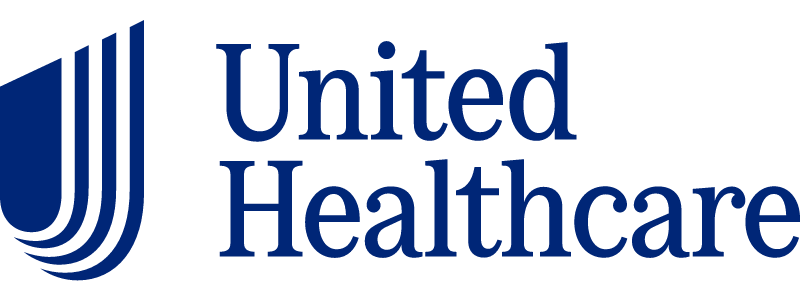Research shows that approximately 840,000 full-time students currently attending U.S. colleges are in recovery. Therefore, the key to living a successful life in college requires maintaining an honest dialogue with your peers, educators, parents, and healthcare professionals. In this guide, we will explore how those recovering from a substance use disorder can navigate the unique challenges of college or high school without using substances.
The Challenges of Being a College Student in Recovery
Going to college is a time for transition and excitement because it offers the opportunity to begin a new life of growth and adventure. You are about to embark on a journey to meet new people, try new experiences, and learn new topics. For many of us, college and high school are a means to developing the skills and relationships that will make us successful in the adult world. However, some may face certain challenges because of trauma, substance use, and other mental health issues.
Some of these challenges include:
- Facing academic and legal consequences of past actions
- Transitioning from a treatment facility to an academic institution
- Sharing recovery status to faculty and friends
- Attending or forming recovery support on or near campus
- Juggling responsibilities as both a student and a person in recovery
- Finding sobriety-friendly social activities
- Managing triggers and peer pressure to use alcohol and drugs
- Relearning life skills, such as time management and budgeting
- Navigating stigmas surrounding SUDs and recovery
These issues may surface in ways that present challenges and leave the student more vulnerable to drug or alcohol consumption.
Know the Signs
During a person’s time in college or high school, stress and anxiety run high because of the pressure to use substances and the array of challenges that stems from starting or continuing one’s education. Too many experience overwhelming feelings that often lead to relapse or continued substance use.
The National Institute of Mental Health (NIMH) provides some key signs of stress and anxiety:
- Feeling overwhelmed by the amount of work to be done
- Feeling tired no matter how much sleep one gets
- Difficulty concentrating on anything for more extended periods
- Procrastinating on completing necessary tasks
- Not eating enough or eating too much
- Physically feeling ill or not well
- Isolating or withdrawing from peer
- Avoiding any previously enjoyed activities or fun
- Using unhealthy coping methods
By being aware, you can take measures to reduce the impact stress has on your well-being.
How to Stay Clean During College or Highschool
Living a drug-free life will take some planning, patience, and discipline. Certain recovery skills allow a person to identify what’s going on in their life. Therefore, using assessment shows how to process and form a plan when faced with challenging situations. Finally, you can manage their action plan to resolve difficult situations.
Good resources to help your action plan include:
- Student Health & Counseling Center: Most colleges or high schools have either a Student Health & Counseling Center or a Guidance Office. Both provide a range of counseling, and life-skills programs students can access freely. Students can receive individual and group therapy, mental health assessments, and referrals to other available services. Some might offer resources, such as hotlines, for students considering self-harm or are distressed. Most academic institutions provide educational programs or books on managing stress, developing coping skills, substance use, and mental health management.
- Self Care Opportunities: Most schools create an environment where students can practice self-care and learn how to take care of themselves. They offer opportunities for students to consume healthy foods, take part in fun activities like outdoor group activities, and participate in volunteer opportunities. They also allow students to meditate, practice yoga, and attend to their faith in practice.
- Set Realistic Goals: Schools provide academic resources to help students stay on track. Students can turn to their guidance counselor, dean, or Center for Academic Success for help. These officials provide students with the strategies and resources necessary to improve their grades and succeed in their classes. Students can also book free consultations, tutoring sessions, or workshops to help with difficult academic tasks like completing assignments, developing a study plan, or managing course material.
Clearfork Academy Partnership With University of Texas Charter School
We are excited to partner with the University of Texas Charter School to prepare our participants when they finish our program. Participants can join classes right at our facilities through a University of Texas Charter School satellite campus. Teachers who receive special preparation to work with the young adults in the program facilitate these courses.
For many of us, college and high school provide an environment necessary for developing the skills and relationships that will make us successful in the adult world. Nevertheless, some may face certain challenges due to trauma, substance use, and mental health issues. At Clearfork Academy, we believe that recovery is possible and that treatment centers like ours can help. We offer a variety of SUD treatment programs that can be tailored to meet the needs of any individual especially those with mental health disorders. Our center offers a holistic approach, which includes more than just medication and therapy. We also provide educational resources, such as group classes, workshops, and access to academics. Due to our partnership with the University of Texas Charter School, our participants also have access to academic success while in treatment. Our program is designed for individual students’ needs. To learn more, reach out to Clearkfork Academy today by calling us at (817) 259-2597.
Austin Davis, LPC-S
Founder & CEO
Originally from the Saginaw, Eagle Mountain area, Austin Davis earned a Bachelor of Science in Pastoral Ministry from Lee University in Cleveland, TN and a Master of Arts in Counseling from The Church of God Theological Seminary. He then went on to become a Licensed Professional Counselor-Supervisor in the State of Texas. Austin’s professional history includes both local church ministry and clinical counseling. At a young age, he began serving youth at the local church in various capacities which led to clinical training and education. Austin gained a vast knowledge of mental health disorders while working in state and public mental health hospitals. This is where he was exposed to almost every type of diagnosis and carries this experience into the daily treatment.
Austin’s longtime passion is Clearfork Academy, a christ-centered residential facility focused on mental health and substance abuse. He finds joy and fulfillment working with “difficult” clients that challenge his heart and clinical skill set. It is his hope and desire that each resident that passes through Clearfork Academy will be one step closer to their created design. Austin’s greatest pleasures in life are being a husband to his wife, and a father to his growing children. He serves at his local church by playing guitar, speaking and helping with tech arts. Austin also enjoys being physically active, reading, woodworking, and music.




